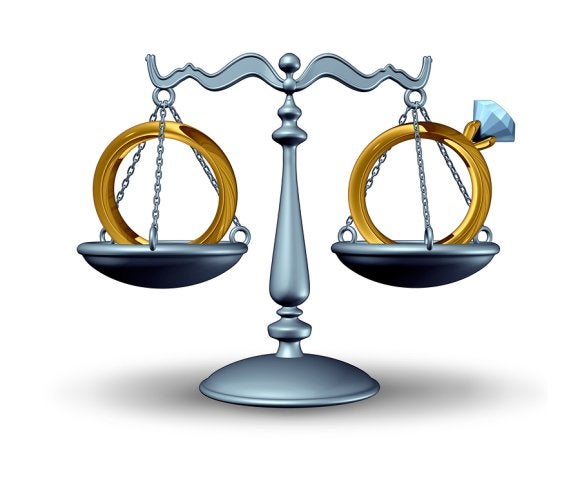-
Highlighting the Advantages of Mediation
Litigation is often thought of as being the primary method of resolving disputes. However, it isn’t always necessary to enter a courtroom to reach a resolution. Mediation near Anne Arundel County is often an effective, non-contentious way of coming to a mutually beneficial agreement. If you would like in-depth information about the mediation process , you should consult a mediator who has experience in this area and appointed by the Circuit Court for Anne Arundel County for domestic mediations.
Mediation Can Resolve Many Types of Disputes
You might already know that some couples choose divorce mediation instead of divorce litigation. Divorce mediation is preferable to some individuals because it is, among other things, confidential and cost-effective. However, mediation is a versatile tool that can resolve a wide range of disputes. You should consider mediation if you are having post-divorce issues related to property or finances, child custody mediation, and business dispute mediation. Mediation can be used to resolve essentially any type of non-criminal dispute. For example, an individual might use mediation to resolve problems with his or her neighbor.
mediation to resolve problems with his or her neighbor. The Parties Retain Control Over the Process
When individuals resort to litigation to resolve disputes, they turn control of the matter over to the judge who has never met the parties before and will not remember the parties if he/she saw them in a local grocery store. It’s not uncommon for one or both parties to be dissatisfied with the judge’s decisions and orders as judges try to reach a solution he/she believes is fair and reasonable. Mediation is often preferable because both parties retain control over the decisions . Although it’s likely that both individuals will need to compromise to some extent, they both have the option to agree—or not—with the proposed solutions. If the parties do not agree, the parties can have a third party resolve the issue.Mediation Uses an Informal Approach
Another advantage of mediation is its informality compared to the litigation process. Even in civil cases, which don’t involve criminal charges, the courtroom can be an intimidating setting with objections and trying to get the judge to understand your side of the story. Many people find that they are more comfortable with mediation because the setting and the process itself are far more relaxed. The mediator is a third party neutral and can spend more time trying to understand each person’s position, and reflect that position to the other party. A mediator can use a tool called reframing whereby the mediator uses his own words to try and explain each parties position as well as pointing out the common agreements between the parties. The mediator can also use a tool called caucusing whereby he/she talks to each individual separately so that a person can openly speak his/her mind as well as discuss issues that he/she does not want stated to the other person.Mediation Promotes Harmonious Problem Solving
Resolving matters in court isn’t always a contentious process; however, it often does burn bridges. For individuals who expect to have dealings with each other going forward, mediation offers a way to work toward a more harmonious relationship in the future. This is particularly ideal for individuals who must co-parent a child, for neighbors who must continue living next to each other, and for business partners and colleagues who must continue to work with each other. Mediation is also gives an opportunity for each other to hear the other person without fearing the consequences of what is said being used against him or her. There are many success stories where mediation allowed parties to rebuild a bridge between them. -
What Is Collaborative Divorce?
Divorce is often thought of as being a highly contentious process, but it doesn’t have to be this way. For many couples, collaborative divorce is a viable option for ending a marriage in a non-antagonistic manner. If you’ve considered undergoing divorce mediation near Baltimore , then you already have a good idea of what collaborative divorce entails. In mediation, couples meet with a neutral third-party mediator to work out issues and come to mutually agreeable solutions. However, an attorney typically isn’t present during mediation.
Collaborative divorce essentially combines the best of both worlds. It allows for alternative dispute resolution with the added benefit of continuous legal counsel. When the collaborative law process begins, the attorneys for both parties sign a legal agreement that states they will not serve as the parties’ counsel during litigation, in the event that collaboration fails. Then, the parties discuss their options and goals knowing that the attorneys assisting them are focused on the parties reaching a settlement. In addition to having the lawyers present, the parties may utilize the services of mental health professional as a coach or a financial planner.. Any agreements the parties arrive at are recognized by the court.

-
A Guide to the Basics of Estate Planning
Every adult should give consideration to estate planning , regardless of whether their assets are substantial or not. It’s commonly thought that estate planning in Baltimore only involves the creation of a will. In fact, estate planning can encompass many other elements, such as making arrangements for the care of your minor children and specifying your healthcare preferences in the event that you become incapacitated. The minimum three documents everyone should have are a Last Will and Testament, Advance Medical Directive, and Power of Attorney. For legal guidance, you should consult an estate planning attorney.
Designating Beneficiaries
When you meet with a lawyer to draft your last will and testament, you’ll be asked which beneficiaries you’d like to name. Your beneficiaries are the individuals to whom you bequeath your assets after your death . You could choose to leave all of your assets to one individual or you may wish to divide them between beneficiaries. You can be as specific as you would like. For example, you could bequeath family jewelry to a child or your piano to a sibling. You could also leave proceeds of your assets to charities.Maximizing the Bequeathment
The assets you leave to your beneficiaries may be subject to federal and state estate and inheritance tax. Estate tax can be significant in some cases. One benefit of hiring an estate planning lawyer is that he or she will have extensive experience in strategies that maximize the amount that your beneficiaries will receive by minimizing taxes.
can be significant in some cases. One benefit of hiring an estate planning lawyer is that he or she will have extensive experience in strategies that maximize the amount that your beneficiaries will receive by minimizing taxes. Designating a Guardian
If you have minor children, your will is the document that will establish guardianship in the event that you pass away before they reach the age of majority. When choosing a guardian for your children, consider factors such as your preferences for your children’s upbringing and which individual is most likely to provide your children with the stability they need. Be sure to ask the individual if he or she is willing to assume guardianship.Designating a Custodian or Trustee
If you have minor children, your will can leave either a custodian to hold property of your minor children or a Trustee. The Custodian or Trustee does not have to be the Guardian over your child. You can name a different person to hold the property you are leaving for the children. Typical, a Custodian holds the property until the child reaches age 21. Instead of a Trustee, you could elect a Trustee who can hold the property pass the age of 21. The Trustee can also be provided with specific instructions of when and how to distribute property for education, the child’s needs, etc.Establishing a Living Will, Advance Medical Care Directive and Healthcare Proxy
Other important components of estate planning include establishing a living will and designating a healthcare proxy. Typically this document is called an Advance Care Directive whereby you select a person to act as your healthcare proxy. This Directive not only deals with end of life issues (do you wish to receive life support), but also health care needs immediately. Your agent will be able to communicate with your health care providers as well as insurance companies on your behalf. The Directive can go into effect either immediately or if you become incapacitated, or unable to communicate your wishes. In selecting this person, you want to select someone that you trust and will act in your best interest.Establishing a Power of Attorney and Attorney-In-Fact
Should you be out of the country, bed ridden, or incapacitated, you will need a third party to act on your behalf related to your property and financial issues. Estate planning includes establishing a Power of Attorney whereby you name a person to act as your agent and attorney-in-fact when you cannot. He/she will be able to handle issues related to your bank account (make deposits and pay your bills), invest or withdraw from retirement or other investment accounts, address cash life insurance policies, file your tax returns, and apply for government benefits. The Power of Attorney can be effective immediately or upon you being unable to handle your affairs. It is also can be limited to last for a short period of time while you are on vacation or involved with a business matter -
FAQs about Mediation for Divorce and Custody Disputes
Divorce is always a difficult process, but for some couples, mediation can make it easier. During divorce mediation, a neutral third party can help you and your spouse negotiate an amicable end to your marriage with equitable decisions about property, finances, and child custody. Throughout the mediation process, the mediator will not provide legal advice to either party, but can answer questions about how the courts work and how to reach an ideal settlement. By choosing mediation, many couples are able to avoid some of the acrimony that can occur at the end of a marriage and maintain a healthy relationship for themselves and their children. Find out more about divorce mediation in this infographic from Mummert Law . Our experienced attorney can assist with the mediation process near Baltimore and ensure you and your spouse arrive at mutual agreements. Please help others dealing with divorce and custody issues understand this alternative to the courtroom by sharing this information.


